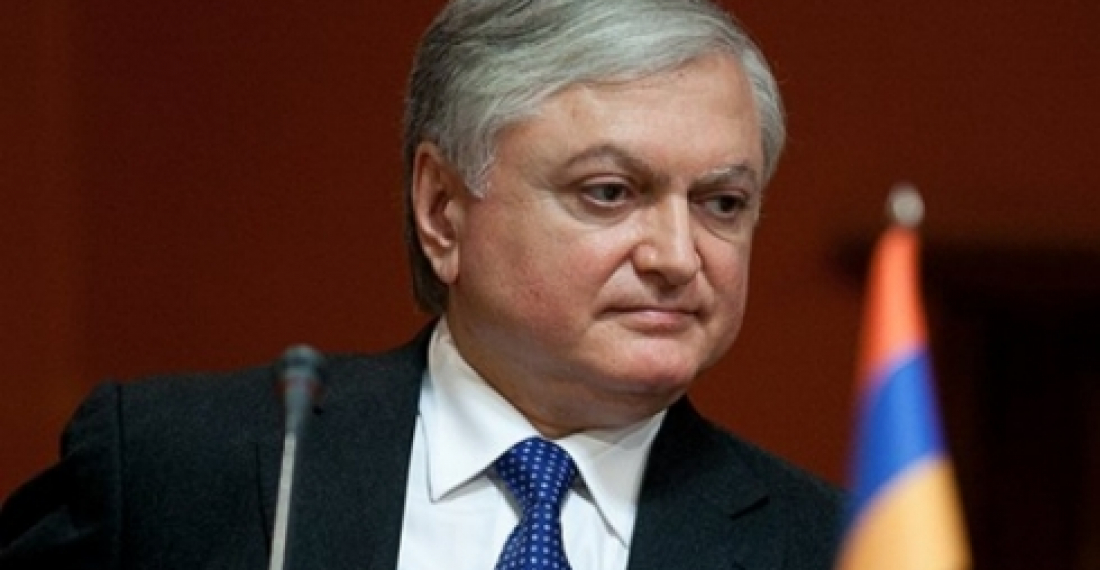Министр иностранных дел Армении Эдвард Налбандян дал свою версию событиям в 2013, когда Армения не подписала Соглашение об ассоциации с Европейским Союзом, как было запланировано.
Выступая на 89-м Семинаре Парламентской ассамблеи НАТО "Роз-Роут" в Ереване, 18 июня, Налбандян отметил, что Армения хотела присоединиться к Таможенному союзу под руководством России за долго до сентября 2013 года. "За долго до этого, когда нас спросили хотим ли мы вступить в Таможенный союз мы сказали да. Мы не вступали в Таможенный союз, поскольку никто нас не приглашал", сказал Налбандян к удивлению некоторых из присутствующих.
Налбандян отметил, что Армения желала сотрудничать со всеми, но ей был представлен выбор: либо подписание Соглашения об ассоциации с ЕС, либо вступление в Евразийский экономический союз России. "Нам сказали, что мы должны были сделать выбор, цивилизационный выбор. Я сказал, что мы этот выбор сделали тысячи лет назад. Мы хотели подписать Соглашение об ассоциации, но без DCFTA, и нам заявили, что это не возможно и что Соглашение об ассоциации несовместимо с членством в ЕврАзЭС", сказал министр. Налбандян обвинил Брюссель за принуждение Армении в принятии решения. Он сказал, что сейчас Армения и ЕС ищут способы для дальнейшего развития их отношений, и договорились сотрудничать по целому ряду вопросов пока "это совместимо с международными обязательствами Армении".
Налбандян приветствовал тот факт, что Рижский Саммит рекомендовал государствам-членам ЕС дать Европейской Комиссии новый мандат на ведение переговоров по новым соглашениям.
По словам политического редактора Commonspace.eu, многих в Европейском Союзе поразит версия министра Налбандяна касательно событий вокруг вопроса о подписании Соглашения об ассоциации между Арменией и ЕС в 2013 году. Переговоры по Соглашению об ассоциации проводились десятки раз в течение нескольких лет и в сентябре 2013 года был согласован и готов к подписанию документ в тысячу страниц. На протяжении всего процесса армянские чиновники заверяли Брюссель в том, что Соглашение об ассоциации с ЕС их выбор - что было логично, учитывая то, что ЕС является крупнейшим торговым партнером Армении.
Эта версия событий противоречит также неофициальным брифингам, на которых армянские дипломаты говорили о причинах отказа Армении от подписания Соглашения об ассоциации, а именно о том, что на Армению оказывалось сильное давление со стороны России. Сам президент Армении Серж Саргсян, когда объявлял об этом решении в Москве 3 сентября 2013 года, подчеркнул вопрос безопасности.
Пока не ясно, что именно вызвало смену версии повествования случившегося у армянской дипломатии, но скорее всего это не поспособствует облегчению переговоров, как только начнется процесс согласования новых договоренностей их отношений.
источник: commonspace.eu
фото: Министр иностранных дел Армении Эдвард Налбандян (фото из архива).






